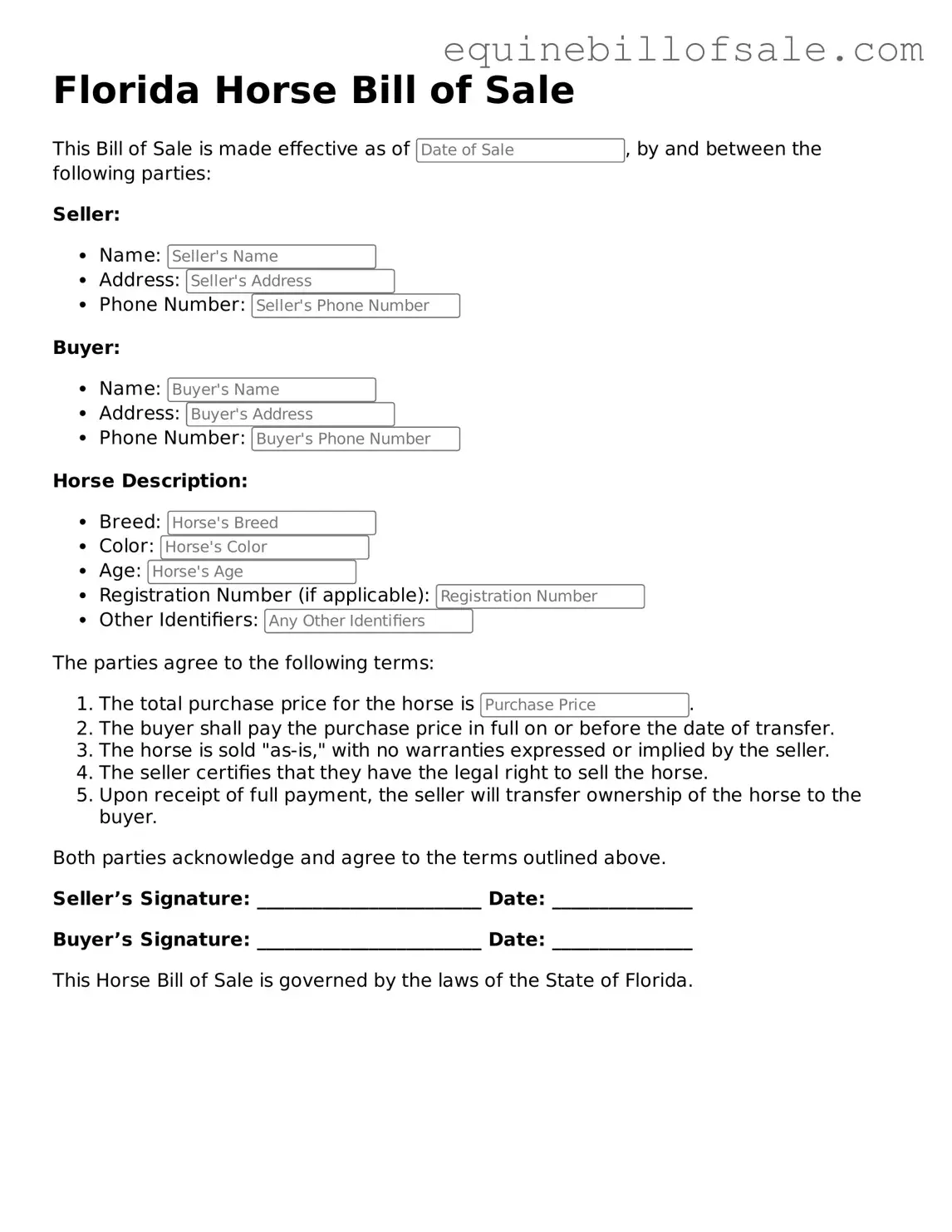What is a Florida Horse Bill of Sale?
A Florida Horse Bill of Sale is a legal document that serves as proof of the sale and transfer of ownership of a horse. This document outlines the details of the transaction, including the identities of the buyer and seller, the horse's description, and the sale price. It is important for both parties to have a written record to protect their interests and clarify the terms of the sale.
Why is a Horse Bill of Sale important?
The Horse Bill of Sale is crucial for several reasons. Firstly, it provides a clear record of the transaction, which can be helpful in case of disputes or misunderstandings in the future. Secondly, it can be used to establish ownership, which is particularly important for registration purposes or in the event of theft. Lastly, having a written agreement can help protect both the buyer and seller by outlining any warranties or representations made during the sale.
What information should be included in the Horse Bill of Sale?
Essential information includes the names and addresses of both the buyer and seller, a detailed description of the horse (including breed, age, color, and any identifying marks), the sale price, and the date of the transaction. Additionally, any terms of the sale, such as payment methods or warranties, should be clearly stated. It is also advisable to include a statement indicating whether the horse is sold "as is" or with any guarantees.
Do I need a witness or notarization for the Horse Bill of Sale?
While Florida law does not require a Horse Bill of Sale to be notarized or witnessed, having a third party present can add an extra layer of security to the transaction. A witness can help confirm the identities of the parties involved and the details of the sale. If you choose to have the document notarized, it can further validate the authenticity of the signatures and the agreement.
Can I create my own Horse Bill of Sale?
Yes, you can create your own Horse Bill of Sale. It is important, however, to ensure that it includes all necessary information and complies with Florida laws. Many templates are available online, but customizing one to fit your specific needs is advisable. This ensures that all relevant details are covered and reduces the risk of any misunderstandings in the future.
What if there are issues after the sale?
If issues arise after the sale, such as health problems with the horse or disputes over the terms of the agreement, the Horse Bill of Sale can serve as a critical reference point. The document should outline any warranties or representations made by the seller. If a dispute cannot be resolved amicably, the Horse Bill of Sale may be used in legal proceedings to support your case.
Is there a specific form I need to use for the Horse Bill of Sale?
There is no specific state-mandated form for a Horse Bill of Sale in Florida. However, it is recommended to use a well-structured template that includes all necessary information. This ensures that the document is clear and comprehensive. Various resources are available online, and it is wise to review them to find one that meets your needs and complies with state laws.
